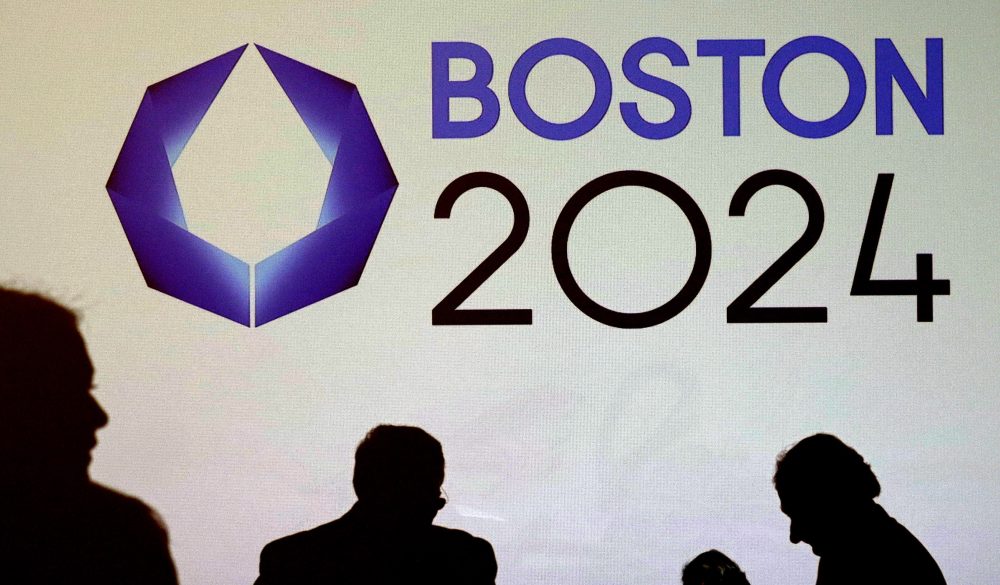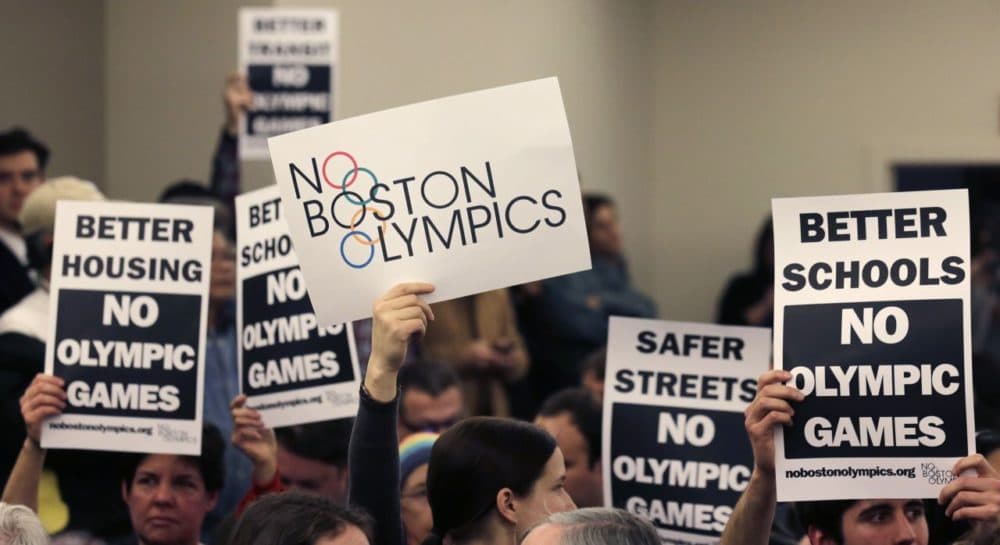Advertisement
Commentary
Just Say No ... To Hosting The Olympics

"No Boston Olympics" presents the story of how a small, under-financed group of determined people derailed the plans of a large group of powerful and wealthy businessmen and politicians to bring the 2024 Olympics to Boston.
If the former hadn’t prevailed, these days the suspense here would be palpable. Last week, the International Olympic Committee announced that in September they will announce both the 2024 and 2028 Summer Games hosts. Los Angeles, which stepped in for Boston, is likely to be one of the chosen cities.
The book, subtitled “How and Why Smart Cities Are Passing on the Torch” and written by Chris Dempsey and Andrew Zimbalist, presents a terrific story. And it does more.
Those opposing Boston as a host of the Games were intelligent in their approach and measured in their rhetoric. They made the most of their limited resources. But they might not have succeeded in derailing the plan endorsed by the most influential officials in the city and the state if those officials and the business people allied with them hadn’t so thoroughly bungled the job.
The proponents of the Boston bid felt there was no need to share their plan with the public. This pleased the International Olympic Committee, which has always regarded public opinion as an irrelevant inconvenience. So the IOC was fine with the bid committee’s secrecy. The two groups could have shared the same motto: “Trust us.”
[The book] is a primer on how an alert, educated, energetic group of citizens can challenge the plans, the arrogance, the misrepresentations and the power of wealthy businesspeople and politicians.
Dempsey, Zimbalist and the others opposing the Boston bid didn’t. They understood that backers of the Boston bid were up against something they call “the Boosters’ Dilemma,” which means those backing the bid had to try to simultaneously satisfy the autocratic and absurd demands of the IOC and the legitimate concerns of the city and state. When it comes to the Olympics and other mega-events, the latter are normally trampled and trashed in the interests of the former.
Part of the reason the Boston bid failed was that those backing it were unwilling to publicly acknowledge the gap between the demands and needs of the two groups, let alone reconcile them. As Dempsey and Zimbalist point out, the differences have become increasingly dramatic over time, which partly explains why bidding to host the Olympics is not nearly as popular as it once was.
A few examples:
The members of the IOC demand special treatment when they attend the Games, including traffic lanes reserved for their exclusive use. The business of the host city does not stop during the Games. People still have to get to work. In a city already clogged with traffic, folks were not thrilled at the prospect of losing lanes on roads leading to and running through the city.
The IOC wants great TV backdrops for the presentation of the Games. The Boston Common struck them as a dandy volleyball venue. The common is, well, “common.” When people learned that a few dozen trees would have to go and that the public’s access to it would be shut down except for members of the public who’d purchased very expensive tickets to watch volleyball, there was considerable dismay.
The attempt to dragoon the people of Boston into enthusiasm for hosting the Games failed in part because supporters of the bid — politicians, advertising executives, construction moguls, and public relations pros — were absurdly overconfident. They were sure they knew how to pull off a deal this big; they’d been doing it all their professional lives.

As a result of that overconfidence, they dismissed the opposition as a few clowns sending tweets to each other. They could see no reason why people living in a city with an antiquated public transportation system wouldn’t be gullible enough to believe that the best way to fix that system was to host the Olympics, though there was no reason why those goals should intersect. They assumed the less the public knew about such variables as cost, the more smoothly the process would go. The IOC encouraged that approach. The alleged experts also assumed that the public would swallow their budget estimates when they were made available, and perhaps that would have been the case if Dempsey, Zimbalist, et al hadn’t demonstrated with the numbers associated with previous Games that those estimates were at best silly, and at worst evidence of the intention to defraud the taxpayers.
So "No Boston Olympics" serves a larger purpose than storytelling. It is a primer on how an alert, educated, energetic group of citizens can challenge the plans, the arrogance, the misrepresentations and the power of wealthy businesspeople and politicians. The people opposing the Boston Olympic bid demonstrated that real information could triumph over the empty promises of a group of people determined to enhance their own power, wealth and prestige while sticking the public with the bill. That’s the model the IOC has developed, and it’s the model a host city must embrace.
In demonstrating an alternative to that deceptive and destructive course, Dempsey and Zimbalist provide hope to people who would oppose not only those seeking to host the Olympics, but those engaged in all manner of dangerous mischief from the city council chambers to the White House.
